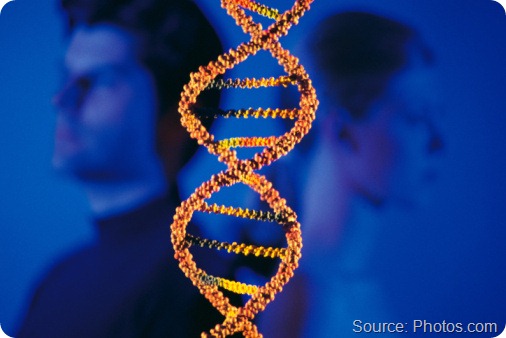It’s nearly a decade since the completion of the Human Genome Project, (1) which aimed to sequence the complete human genome.
The project promised potentially amazing advances for medicine. Professor Allan Bradley, the director of the Wellcome Trust Sanger Institute, said to the BBC that “the eventual health benefits could be phenomenal.”(2)
But how close actually are we to personalized medicine? When will we begin to see the benefits of the Human Genome Project?

What is personalized medicine?
Throughout history, doctors have prescribed certain medicines for certain conditions. Yet, sometimes a medicine would not work for a particular person. The reason for this was not known.
We now know that genetics may play a large role in the way people respond to certain medication. In fact, there is a whole discipline devoted to studying this topic – pharmacogenetics.(3)
Pharmacogenetics has many potential benefits. These include improving the safety and enhancing the efficacy of medicines. This will be particularly useful for conditions such as diabetes, depression and asthma where the common treatments are only effective for around 60% of patients. (4)
The Human Genome Project
The Human Genome Project (HGP) commenced in 1990.(5) It’s aim was to map and sequence the complete human genome.
The project was, in fact, rather controversial and it sparked many ethical questions such as, “Is sequencing the human genome an intellectually appropriate project for biologists?”(6)
Some people feel uneasy about the investigation of genetic information. This is because they hold a view called genetic exceptionalism.
Genetic exceptionalism is the view that genetic information is special, as it is uniquely identifying. Also, it can be used to predict susceptibility to disease. (This would, of course, be very useful information to a health insurer.) (4)
According to Nuffield Bioethics, genetic information should not be viewed in this way, as it is not necessarily uniquely special. This is because, other substances, such as blood, can also be very revealing when tested. In addition, not all genetic tests have such a highly predictive value. (4)
Essentially, the controversy over the sequencing of the human genome, in part, related to its potential powers.
The HGP is a useful tool for the development of personalised medicine, as Craig Venter states, in his interview with Liz Bonin, most drugs only work on 30% of the population due to differences in genetics.
Knowing our genome can also be useful for preventative medicine. Craig Venter states that he has now begun taking Statins to lower his cholesterol after his genome revealed he has increased risk of heart disease
How close are we to personalized medicine?
Even throughout the HGP itself, researchers were beginning to see the potential for personalized medicine. As early as 1993, researchers in the US and elsewhere were finding genes that linked to certain conditions.
US researchers found the MSH2 gene which is linked to an increased risk of colon cancer; and researchers in Canada found variations on the FAD gene which were linked to Alzheimer’s disease.(5)
But how do discoveries like these translate into practical medicine?
Venter, in his book A Life Decoded, outlines a study in which twenty-two patients with lung cancer, had their DNA analyzed to reveal whether they had extra copies of the epidermal growth factor receptor (EGFR) gene.
It is known that patients with extra copies of the EGFR gene are more likely to respond to certain types of drugs including gefitinib and erlotinib. This meant that the therapy could be aimed at patients who would benefit most from it. (7)
More recently, there have been advances in the path to personalized medicine for cancer patients. Two papers outlining data on how different cancer cells respond to anti-cancer drugs have recently been released. (8)
It is hoped that this research will allow cancer treatment to become more tailored.
That is not to say that personalized medicine for cancer does not already exist. For some tailored medicine for cancer does already exist. A breast cancer drug called Herceptin is already known to work in patients with an overactive HER2 gene.(8)
Cancers that are associated with an overactive HER2 gene are called HER2-positive cancers. They are estimated to affect 1 in 5 breast and stomach cancer sufferers.(9)
A knowledge of the genetic basis behind a cancer means that it can potentially be attacked more specifically. For example, in the breast cancers that overproduce HER2, a monoclonal antibody has been developed that causes selective killing of cancer cells, without affecting normal cells which do not overproduce HER2.(10)